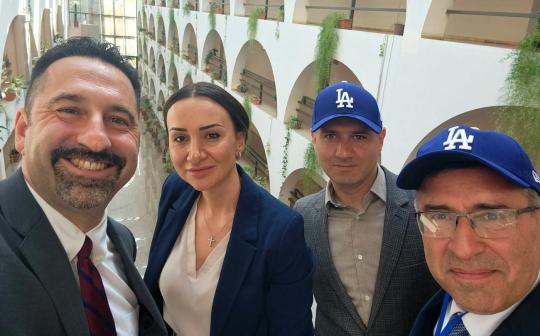Los Angeles’ innovation officer discusses future

Peter Marx, the chief innovation technology officer for the city of Los Angeles, recently sat down with The Planning Report to discuss a number of current projects, including the city’s open data initiative.
Marx joined the city in February as its first innovation technology officer after working at Qualcomm Labs. He’s attempting to bring a more private sector approach to the city’s technology, pulling in lessons learned from other similar cities around the country.
Some highlights from the interview, which you can read in full here.
On the his job:
“I think of my job as threefold: It’s working with the tech industry, whether media and entertainment, consumer packaged goods, or online services—those are all familiar spaces; it’s working to make the city services better for the people who live, work, and visit here; but in addition, it’s recognizing that technology is changing the city around us. This is very much a place where I get to have a front row seat and even participate in how technology is going to change the infrastructure and experience of being in the city.”
How he’s trying to change culture:
“I’m just one person, and we all know the limitations of budget, process, procurement, and so on. City government has been around for a very, very long time. I don’t expect that we’re going to magically change an entire culture that has developed over many years and is very good at what it does. However, that doesn’t mean we aren’t able to do things that make the city more liveable, more responsive, and a better user experience.”
On the city’s 311 app:
“MyLA311 is an app that allows people to make service requests to the city. You can report a broken streetlight, a pothole, and even connect with LADWP to pay your bill. It’s for straightforward city services. The vision is to make it more comprehensive. Right now, when a user of that app makes a report, essentially it becomes a transaction that goes right into the city. The user doesn’t get communicated with afterward. Setting up Customer Relations Management, where each resident who reports something to the city is treated as a relationship as opposed to a service request, is super important.”
On next steps:
“When you are developing a digital service, a lot of companies—Amazon and Google being examples—have demonstrated that when you deliver a first product and iterate continuously as your users do things, that’s obviously much better. The city’s procurement system and organization is much more about large milestone deliveries. So there’s a gap between what the city is structured to do and where current development methodologies for digital services need to go.”






